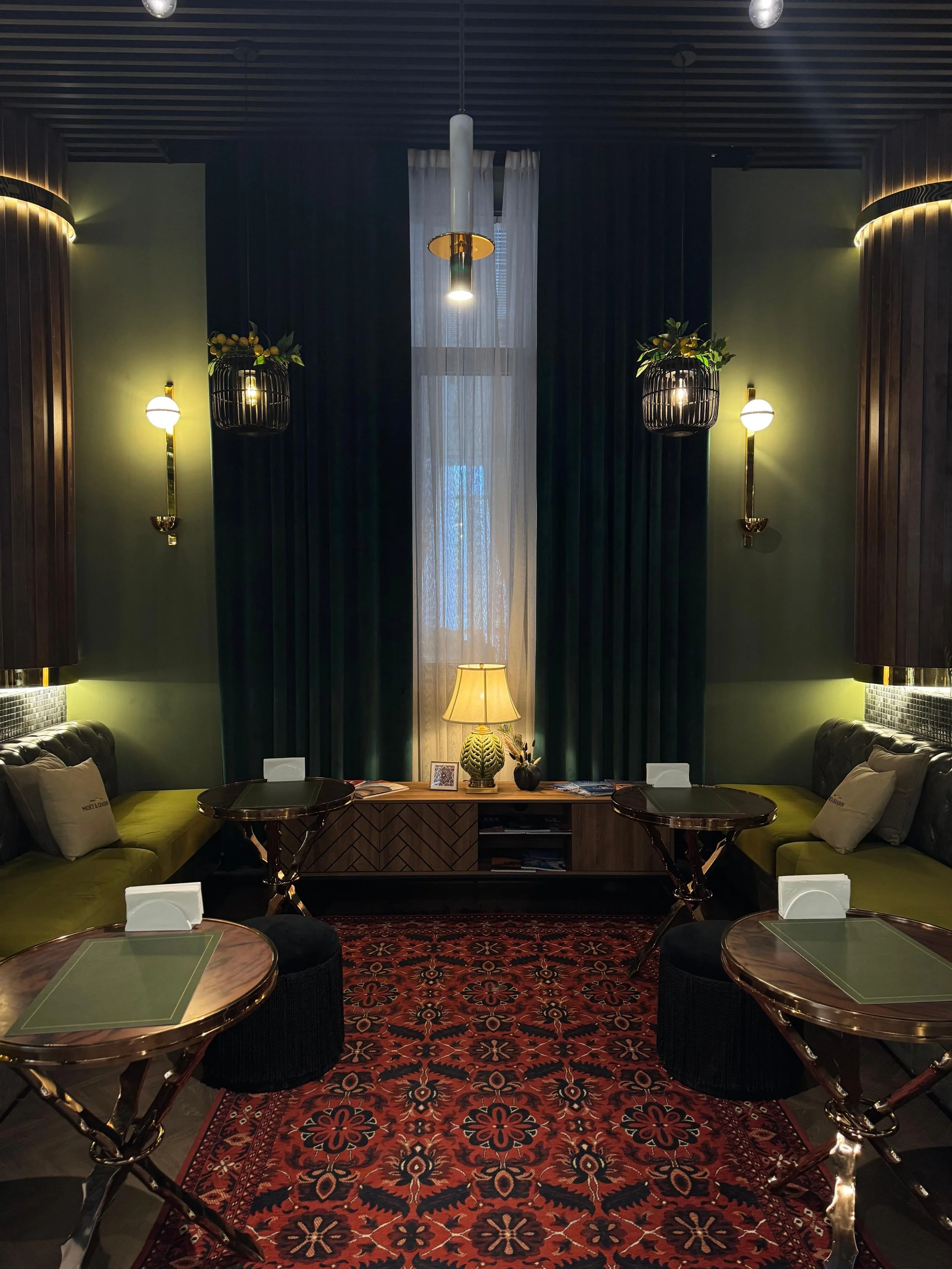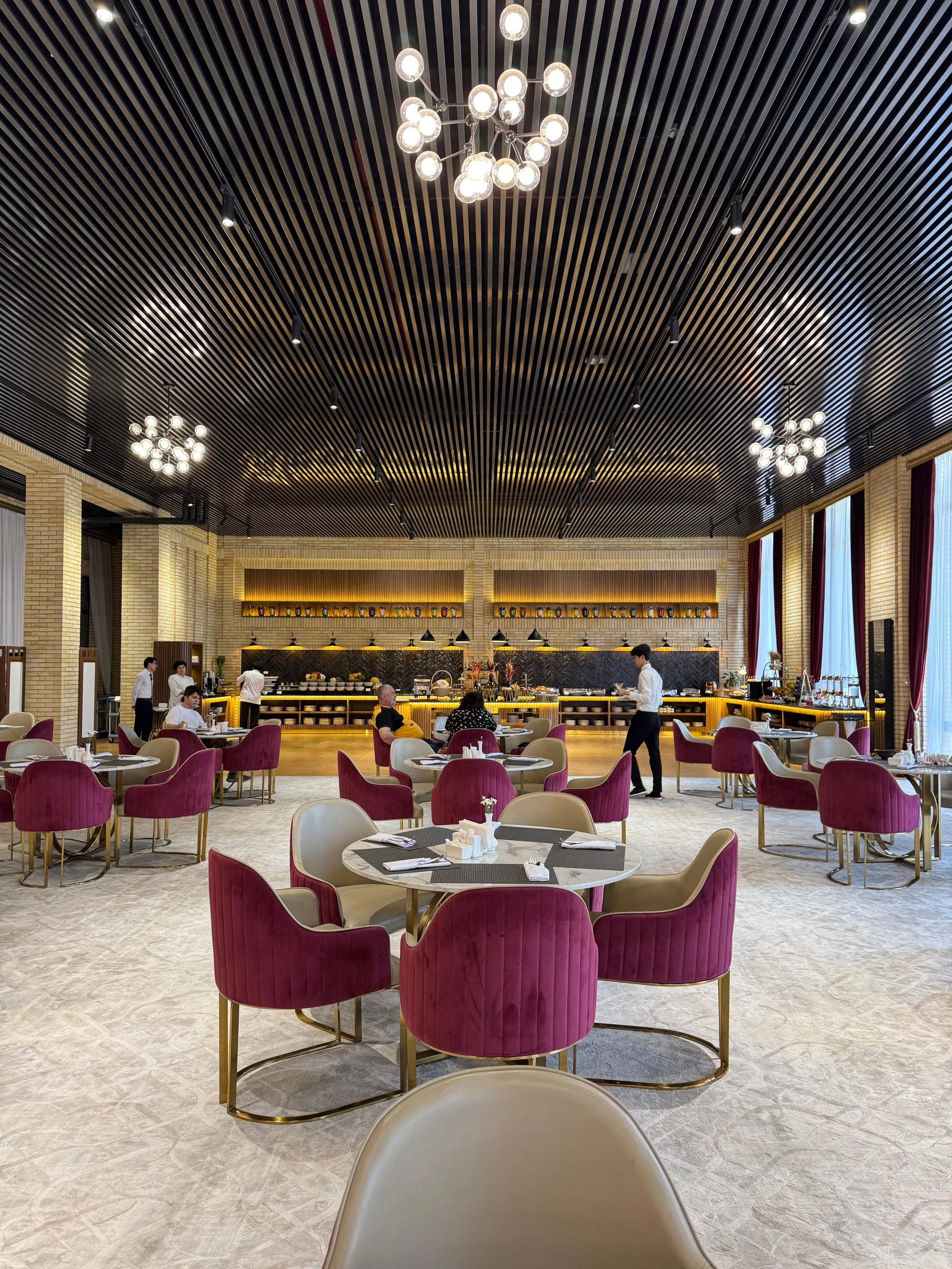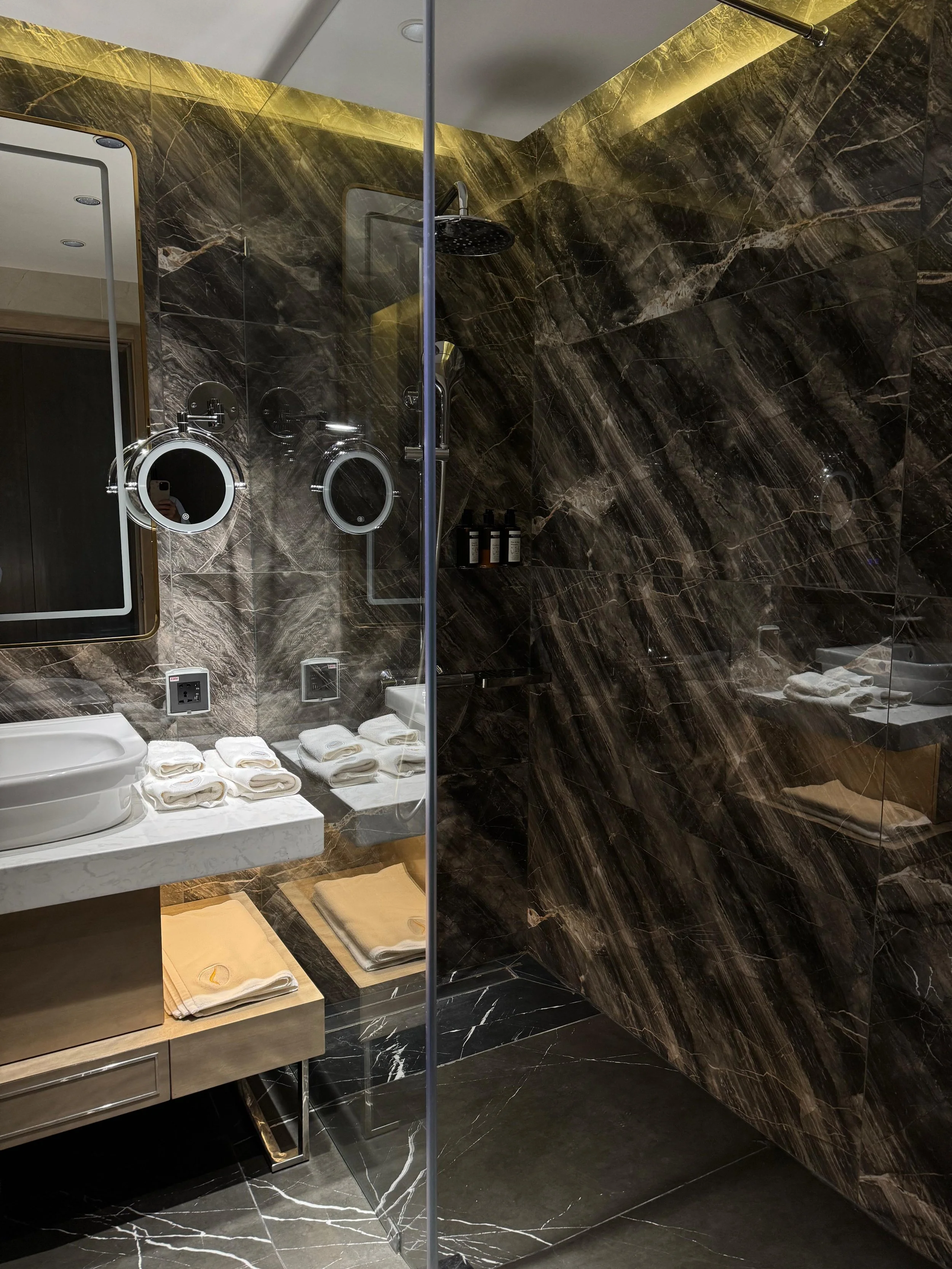Everything You Need to Know Before Traveling to Uzbekistan
Uzbekistan is one of Central Asia’s most fascinating and culturally rich countries yet still surprisingly under the radar for many travelers. From its dazzling mosaic-covered mosques to bustling bazaars and desert landscapes, it offers a mix of history, hospitality, and adventure that’s hard to match.
But like any lesser-explored destination, it helps to arrive prepared. From practical tips like currency and transport to understanding local customs and staying connected, this guide will walk you through the key things to know before your trip so you can travel confidently and make the most of your time in this remarkable country.
Entry Requirements and Registration (Not Just the Visa)
While Uzbekistan has made it much easier to visit in recent years with many nationalities now eligible for visa-free entry or an easy e-visa there’s another detail travelers often miss: mandatory registration.
Anyone staying in the country for more than three days must be officially registered with the government. If you're staying at hotels or guesthouses, they’ll usually handle this for you and give you a slip or digital proof of registration, hold on to it, as officials may ask for it when leaving the country.
However, if you’re booking a private stay (like Airbnb or Couchsurfing), you’ll be responsible for registering yourself, which can be more complicated. Make sure to clarify this with your host ahead of time or book accommodations that provide automatic registration.
Also, keep in mind that the Visa application which I had to do took quite a long time because of technical issues so take this into consideration.
Best Time to Visit Uzbekistan
Uzbekistan experiences a continental climate, which means hot summers, cold winters, and mild, pleasant shoulder seasons. The best times to visit are spring (April to June) and autumn (September to October), when temperatures are comfortable for exploring and the landscapes are at their most vibrant. Spring brings blooming wildflowers, fresh greenery, and festive energy especially around Navruz, the Persian New Year celebrated in March with traditional foods, music, and cultural events. Autumn, on the other hand, is harvest season, and markets overflow with fresh fruit, nuts, and spices, making it a great time for food lovers and photographers alike.
Summer (July and August) can be extremely hot, particularly in desert cities like Bukhara and Khiva, where daytime temperatures often soar above 40°C (104°F). Sightseeing during this season is possible, but you’ll need to plan your activities for early mornings and late evenings, and book accommodations with air conditioning. Winter (November to March) brings colder temperatures and occasional snow, especially in the north and mountain regions. While tourism slows down and prices drop, some rural areas become less accessible. Still, cities like Tashkent and Samarkand remain open and atmospheric if you're prepared for the chill.
Currency and Money Tips
The official currency in Uzbekistan is the Uzbekistani Som (UZS), and it’s very much a cash-first economy especially once you leave the larger cities. While you’ll find ATMs in places like Tashkent, Samarkand, and Bukhara, they’re less common in smaller towns or rural areas.
It’s a good idea to carry enough cash for a few days at a time, especially when traveling between cities. Visa cards are generally more widely accepted than Mastercard, but many transactions such as taxis, markets, or small cafes are strictly cash-only.
When it comes to exchanging money, stick to official exchange offices or banks, both of which offer fair rates and are easy to find in cities. Avoid street money changers, as it’s illegal and could lead to scams. Most larger hotels, mid-to-upscale restaurants, and some shops do accept credit cards, but coverage is inconsistent.
It’s also wise to carry small denominations for tipping, buying snacks, or paying entrance fees at historical sites. Tipping isn’t required, but it’s appreciated, especially in hotels or with guides. Having small notes on hand (1,000–10,000 UZS) makes local interactions easier and smoother.
Language and Communication
Uzbek is the official language of Uzbekistan, though Russian is also widely spoken, particularly in cities and among older generations. English is becoming more common in tourist areas like Tashkent, Samarkand, and Bukhara, especially among younger people and those working in hospitality, but it's still limited outside of those zones. Learning a few basic phrases in Uzbek or Russian can go a long way in building rapport and making everyday interactions easier.
Downloading a translation app like Google Translate is incredibly useful, especially for reading signs, menus, or communicating with taxi drivers. Don’t be surprised if locals go out of their way to help, even if there’s a language barrier, hospitality is a big part of Uzbek culture.
Transportation and Getting Around
Getting around Uzbekistan is relatively straightforward, especially between major cities, thanks to a well-developed train network. High-speed trains like the Afrosiyob connect Tashkent, Samarkand, Bukhara, and Khiva quickly and comfortably, while slower, overnight trains provide a more local and budget-friendly experience.
Within cities, taxis are cheap and widely available, but they’re often unmetered, it’s best to agree on a price before getting in or use ride-hailing apps like Yandex Go in bigger cities for convenience. Long-distance shared taxis and buses are also common for reaching smaller towns or rural areas, though they’re less comfortable than the trains. For travelers seeking flexibility or heading off the beaten path, hiring a private driver for the day is also a popular option.
Check out my article on train travel in Uzbekistan to decide which type of train travel is best for you!
Cultural Etiquette and Dress Code
Uzbekistan is a Muslim-majority country with deep-rooted traditions, but it's also known for its relaxed and welcoming atmosphere. Visitors are generally not expected to follow strict religious customs, but dressing modestly and respecting local norms is appreciated especially in smaller towns or when visiting mosques, mausoleums, and religious sites.
For women, this typically means covering shoulders and knees; headscarves are not required, but having one handy can be useful for entering certain sacred places. Men should also avoid wearing shorts in more conservative areas.
Internet, SIM Cards, and Staying Connected
Staying connected in Uzbekistan is relatively easy, especially in larger cities. Most hotels, cafes, and guesthouses offer free Wi-Fi, though speeds can vary, and connections may be unreliable in rural areas. If you want consistent internet access on the go, it’s worth picking up a local SIM card upon arrival or downloading an e-sim with the provider I use, Ubigi. My code ALEXAM will get you a 10% discount.
Major providers when you arrive like Ucell, Beeline, and Uzmobile offer affordable prepaid plans with generous data packages. You can purchase SIM cards at official kiosks in airports or at mobile shops in cities just make sure to bring your passport, as it’s required for registration. Setting up an e-sim before you arrive will also ensure you stay connected throughout your travels. Coverage is generally good in cities and along main travel routes, though it can be patchy in remote regions.
Keep in mind that some websites and services may be intermittently blocked or slow, so having a VPN installed before your trip is a good idea if you need access to certain platforms or want an added layer of security.
What to Eat and Drink
Uzbek cuisine is hearty, flavorful, and full of Central Asian character. The national dish is plov, a fragrant rice pilaf typically made with lamb, carrots, onions, and spices and it’s something you’ll likely be offered more than once. You’ll also find a variety of grilled meats (shashlik), hand-pulled noodles (lagman), dumplings (manti), and rich soups like shurpa. Meals are often accompanied by non, the traditional round bread baked in clay ovens and treated with almost sacred importance in Uzbek culture.
Tea, especially green tea, is the drink of choice and is offered everywhere, from markets to family homes. Alcohol is available and widely consumed in urban areas, particularly beer and vodka, though it's less common in more conservative regions. Tap water isn’t recommended for drinking, so stick to bottled or filtered water, which is cheap and widely available. Vegetarians may find fewer options in traditional eateries, but major cities now have more cafes and restaurants catering to different diets.
One of my favorite restaurants in Bukhara! I have a list of favorite places in each town listed on my Instagram post here.
Where to Stay
Uzbekistan offers a wide range of accommodations, from charming guesthouses to modern hotels. Your options can vary from boutique hotels with traditional decor, or family-run stays that offer a warm local welcome and home-cooked meals. Below are a few of my reccommended places to stay.
Budget Friendly Stays
Komil Bukhara Boutique Hotel: A cozy and affordable hotel in Bukhara with warm hospitality and homemade breakfasts. Perfect for travelers looking for comfort on a budget.
Mid-Range Comfort
Rakat Plaza: A charming boutique stay offering exceptional amenities and a variety of European cuisnes. Paired with traditional décor and comfortable rooms at a reasonable price.
High-End Luxury
Mövenpick Samarkand: A sleek, five-star hotel blending international standards with Uzbek elegance, located in the heart of Samarkand. Ideal for travelers seeking top-tier comfort, fine dining, and premium service. This is where I stayed while I was there.
Safety and Common Scams
Uzbekistan is considered one of the safest countries in Central Asia for tourists. Crime rates are low, especially violent crime, and the police presence is strong in cities and around tourist areas. Solo travelers, including women, generally report feeling safe, though it’s always wise to take the usual precautions, avoid walking alone at night in unfamiliar areas, keep valuables close, and don’t flash large amounts of cash.
Scams aren’t widespread, but it’s good to stay alert. Common annoyances include inflated taxi prices for foreigners (negotiate in advance or use apps), currency confusion, and overly persistent vendors at popular tourist sites. Carry a copy of your passport (or the real one if required) as you may encounter occasional police checkpoints. As always, trust your instincts and avoid situations that feel off.
Local Experiences You Shouldn’t Miss
Beyond the headline sights, some of the most rewarding moments in Uzbekistan come from immersing yourself in local life. Wander through the bustling Chorsu Bazaar in Tashkent, where locals shop for produce, spices, and household goods. Take a cooking class to learn how to make plov from scratch. Sip tea in a shady courtyard in Bukhara or join a group of locals for an impromptu dance during a wedding celebration in a village square.
Don’t miss the chance to stay in a traditional guesthouse or yurt camp in the desert, where you can enjoy stargazing and step away from city noise. Talk to craftspeople in Khiva or Rishton, where pottery, embroidery, and silk weaving are still practiced by hand. These moments, personal and unscripted, are often what travelers remember most.
Conclusion
Traveling in Uzbekistan is an unforgettable experience that blends stunning Silk Road architecture, warm hospitality, and a fascinating blend of old and new. From navigating train travel and tasting plov to bargaining in ancient bazaars and learning cultural etiquette, being prepared will help you get more out of every moment. With just a little planning, an open mind, and a healthy dose of curiosity, you’ll find Uzbekistan not only easy to explore, but deeply rewarding.
Follow along @alexamcdonald for more Central Asia recommendations!
Here are some of my favorite travel resources:
Book tours & experiences with Get your Guide
Travel the world while volunteering with Worldpackers
Get reliable travel insurance with Safety Wing
Stay connected abroad with an eSIM from Ubigi
Save money on accommodations by housesitting with Trusted Housesitters
Book your hotel stay with Booking.com
Book budget-friendly hostels with Hostelworld
Get cheap flight alerts & deals with Going
Fly for free with my favorite travel credit card
Stay protected online with NordVPN
Disclaimer: This post may contain affiliate links, meaning that if you make a purchase through those links, I may earn an affiliate commission at no extra cost to you. Thank you for helping to support me and this site!














